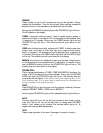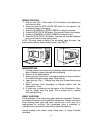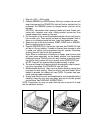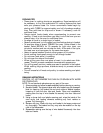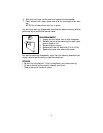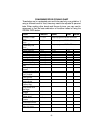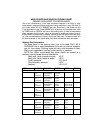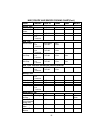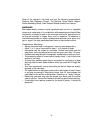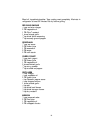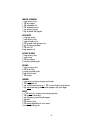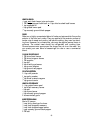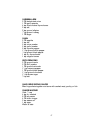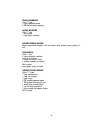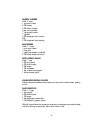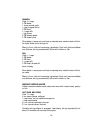13
Some of the recipes in this book are from the following organizations:
National Pork Producers Council, The National Honey Board, Belgian
Endive Marketing Board, New Zealand Wasubi Limited, and Lawrys.
MARINADES
Marinades usually consist of liquid ingredients such as fruit or vegetable
juices, wine, water and oil in combination with seasonings and herbs. Meat
and poultry is allowed to soak in the marinade mixture for several hours or
as long as overnight to impart flavor and/or tenderize. To tenderize, a
marinade must contain an acidic ingredient such as lemon juice, wine, vine-
gar or yogurt; the acid penetrates meat fibers to help tenderize them.
Guidelines for Marinating
• Always marinate food in refrigerator; never at room temperature.
• Allow
1
⁄4 to
1
⁄2 cup of marinade for each 1 to 2 pounds of meat.
• Marinades may be cooked or uncooked. Cooked marinades add the
most flavor and are preferred when marinating for more than 12 hours.
• Cooked marinades should be completely cooled before adding to food.
• The tenderizing effect of a marinade is usually about
1
⁄4
-inch from the cut
surface of the meat.
• A heavy-duty sealable plastic bag is convenient for marinating; a glass
dish may also be used. Select dishes in which the foods will fit snugly but
lie flat.
• Turn food occasionally during marinating so that all sides are equally
exposed to the marinade.
• For tenderization to take place, beef must be marinated at least 6 hours
or as long as overnight. Marinating longer than 24 hours causes the
meat fibers on the surface to break down, resulting in a “mushy” texture.
• Remaining marinade may also be served as a sauce with the grilled
meat or poultry. It should be heated to the boiling point before serving.
• If marinade is not used as a sauce for the meat or poultry, it should be
discarded.



